From 1970 up to "Down To Earth"
On January 10th, 1970 Mick Brockett joined Mo, Roye, Ron and Taff in Hamburg, and
was officially dubbed "light musician," and added his
liquid light backdrop films ideas, poetry and visual elements to complete
the bands psychedelic image to become the fifth member of Nektar.
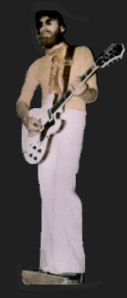
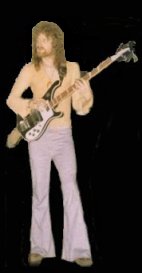 From the very beginning Mo Moore crystallized as the
manager from among the members of the group. It was he who considerably contributed
to their success and the fact that Nektar was booked so many times for concerts.
Through personal contacts with the audience Nektar was able to make many friends
in Germany over the years. In troublesome detail Mo collected addresses of agencies
and promoters in Germany and surrounding countries only to learn that the intermediaries
all too often earn more than the group itself. Because of so many agencies and promoters
Mo soon learned that his list of prospective promoters needed constant editing.
Mo formed his own Nektar management agency to thwart the profit–orientated
promoters. Thereafter, Mo strived wholeheartedly against the exploitation of the
scene by exorbitant ticket fees. Since then Mo has built up Nektar's own management
office, which was directed under Mo and two idealists, Muck (Klaus Dieter Maack)
and Jochen Seeger (who later went on to become tour manager for the SCORPIONS.)
From the very beginning Mo Moore crystallized as the
manager from among the members of the group. It was he who considerably contributed
to their success and the fact that Nektar was booked so many times for concerts.
Through personal contacts with the audience Nektar was able to make many friends
in Germany over the years. In troublesome detail Mo collected addresses of agencies
and promoters in Germany and surrounding countries only to learn that the intermediaries
all too often earn more than the group itself. Because of so many agencies and promoters
Mo soon learned that his list of prospective promoters needed constant editing.
Mo formed his own Nektar management agency to thwart the profit–orientated
promoters. Thereafter, Mo strived wholeheartedly against the exploitation of the
scene by exorbitant ticket fees. Since then Mo has built up Nektar's own management
office, which was directed under Mo and two idealists, Muck (Klaus Dieter Maack)
and Jochen Seeger (who later went on to become tour manager for the SCORPIONS.)
Nektar's first success was chalked up at a gig at the Munich PN–club in 1970.
Their music and the as yet fledging light show were so impressive that an American
Producer signed them immediately, and immediately brought them to Boston to cut
a lp (The Boston album)
Naturally all the musicians thought of a suitable name. Here's how it went: They
chose three names, the up to now name "Prophecy" or instead "Pollen"
or Nektar. However, the band members first wanted to wait for the audience's reaction
to the show. Should it be negative they had "Prophecy" in mind, if positive
"Nektar" or "Pollen" After the concert it happened that a reporter
asked for the name and the unanimous answer was Nektar, spelled with a K because
it fits the music from soft melodies to hard–rock elements.
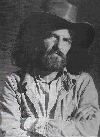 Nektar jammed during their short stay in the USA with a few groups, but had to refuse
concerts because they were not in any position that allowed them to bring their
light show over the big ocean. So three weeks later, they returned to Germany and
made their home in Seeheim / Bergstrabe. Shortly after Nektar settled down, Keith
Walters joined temporarily and made the light show two men strong. Helmut Wenske
and Klaus Holitzka also joined the Nektar family by contributing artwork for the
album covers and the lightshow.
Nektar jammed during their short stay in the USA with a few groups, but had to refuse
concerts because they were not in any position that allowed them to bring their
light show over the big ocean. So three weeks later, they returned to Germany and
made their home in Seeheim / Bergstrabe. Shortly after Nektar settled down, Keith
Walters joined temporarily and made the light show two men strong. Helmut Wenske
and Klaus Holitzka also joined the Nektar family by contributing artwork for the
album covers and the lightshow.
Nektar waited in vain for the release of their record (The Boston lp) in the United
States. Because of the limitations of their contract, Nektar soon realized that
they belonged to a growing numbers groups, which had been, bullshitted by a record
company and could move neither forward nor backward.
In the meantime, more material was composed, the light show was perfected, and Nektar
worked under its' most crucial financial conditions. Many times they were confronted
with the problem of mere existence. Nektar nevertheless was strong enough to persevere,
and make it work.
With their visual performance together following the expiration of their unfruitful
American contract Nektar decided to search for a recording contract. They found
Bacillus Records, today a label of Bellaphon records, a local label in Frankfurt,
and produced two albums, "Journey to the Centre
of the Eye" and "Tab in the Ocean,"
which resulted in a German tour, as well as a trip back to their native country.
There they found that living away from the English scene for so long had removed
most of Britain's earlier influences. "It's all on our own, now, states Moore.
"In England, everything's so hectic and expensive. I don't know how bands manage
to survive there. We couldn't. Life over here is so much quieter. We have loads
of time to think up new ideas and rehearse until things are just right."
The first release on Bacillus was the new composition "Journey to the Centre
of the Eye", a space opera. Keith and Mick were already working with six projectors,
2 strobe lights, slides, and liquid lights at this time. With these facilities they
effectively supported the acoustic performance of the band with an eternal succession
of alive and sensual colour visions.
|
Two signed posters (circa 1971 1972) from the Beat Club in Langelsheim, Germany.
|
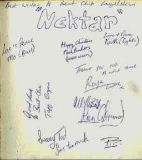
|
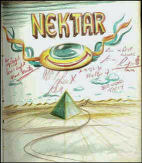
|
|
All band members including Keith Walters signed the one on the left.
|
Soon the European countries noticed Nektar. March 1972 Nektar toured England until
April with the British jazz–rock group "If". The tour was successful.
The audience's enormous reaction proved that Nektar had developed the right feeling
and communication between the audience and the group. Due to Nektar diligence, admirable
idealism and faith in their music, they were able to break through to success in
the European music–scene. This tour proved that Nektar belongs to those few
formations; which haven't been pulled musically to and fro by the English music–scene
and actually strengthened their own musical expressions.
April 1972 Nektar came out with their first single "Do You Believe In Magic?"
which didn't bring the success as their space opera did. By November 1972 the second
album "A Tab In The Ocean" was brought on the market with a hope that
it would help them mount the ladder to success. Result: Nektar's music is only suitable
for long plays in order to express and transmit the message of their music. Meanwhile,
Mick also configured a way to perform the lightshow alone, especially when Keith
Walters decided to leave Nektar at the end of 1972 (to return to England and get
married).
Beginning in 1973 Nektar also went back to England to buy (with borrowed money)
new stage stereo PA equipment, which was eventually developed and converted into
a quadraphonic sound system. By the end of 1973 Nektar had several engagements to
tour through Switzerland, France, England–four times, Austria, as well as
being the opening act for Frank Zappa's European tour. For more information on "The Band Zappa Wants" click here.
By the end of 1973 Nektar dropped all songs from their "Journey to the Centre
of the Eye" suite!
This biography is a rough translation of the with the following lineage. The original
version was written in English then translated and written into German then translated
back into English.